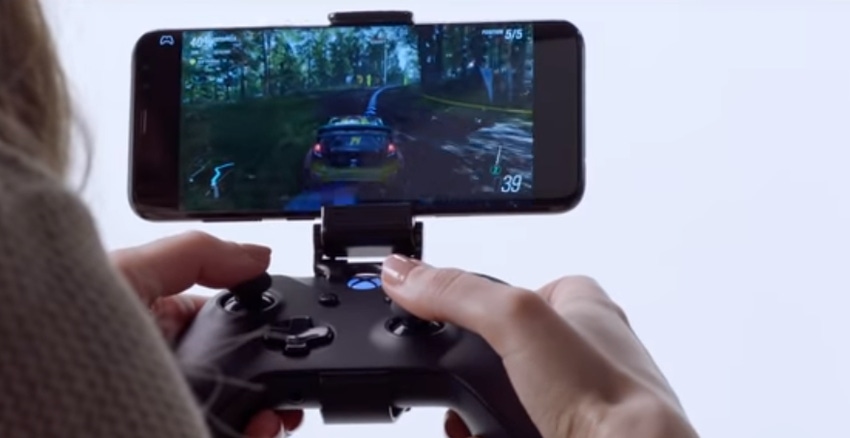Microsoft has announced the launch of Project xCloud to take the world of Xbox gaming onto mobile.
October 9, 2018

Microsoft has announced the launch of Project xCloud to take the world of Xbox gaming onto mobile.
The idea is a relatively simple one. Gaming is traditionally a better experience on consoles which are specifically designed for gaming, but Microsoft wants to take this experience into the mobile world of tablets and smartphones. Trials will start next year and will allow gamers to take the same content from games built for the Xbox console and PC onto their smartphones, using a Bluetooth enabled handset or an under-development touch overlay.
“The future of gaming is a world where you are empowered to play the games you want, with the people you want, whenever you want, wherever you are, and on any device of your choosing,” said Kareem Choudhry, Corporate VP of Gaming Cloud at Microsoft. “Our vision for the evolution of gaming is similar to music and movies – entertainment should be available on demand and accessible from any screen. Today, I’m excited to share with you one of our key projects that will take us on an accelerated journey to that future world: Project xCloud.”
Compatibility with existing and future Xbox games has been enabled by building out custom hardware in Microsoft data centres. The team have architected a new customizable blade that can host the component parts of multiple Xbox One consoles, as well as the associated infrastructure supporting it. The custom blades will be scaled out through the Azure cloud regions over time.
Currently, the test experience is running at 10 Mbps, though the team are keen to bring this down while still maintaining the same experience for gamers through advances in networking topology, and video encoding and decoding. The idea is to ensure these games can be played on 4G networks, though getting the bitrate down might be a tough ask considering the depth and interactivity of the content on consoles such as Xbox.
One thing is very clear; gaming is just another aspect of the mobile world which is pressing the case for 5G.
Microsoft has an ambition to ensure this content will be able to meet consumer experience demands on 4G networks, though this is a selfish view on networking. These games are incredibly immersive and will place additional strain on the network. For the telcos, the issue is not the singular demands of browsing, video or gaming, but the sum of all the parts. Gaming is just another item which has been thrown on top of the teetering pile of network strain. The efficiency gains of 5G will soon become a necessity, not the buffering-free cat video gains of today.
Looking at the gaming industry, growth is gaining momentum fast. Research from Newzoo suggests mobile gaming will generate $70.3 billion across 2018, accounting for roughly 51% of the industry total. This equates to 25% year-on-year growth, compared to 4.1% growth on consoles, such as Xbox, which is expected to account for $34.6 billion. Mobile’s share of gaming is expected to increase to 59% by 2021, taking $106.4 billion. Asia will account for the majority of this spend, though the gains will be experienced in every region.
An excellent example of the surge of mobile of gaming is Fortnite. While this might be a title most play through consoles or on PC, the most recent update for the game saw 60% surge in data traffic over normal peak traffic levels on Verizon’s broadband network, as well as a 5-8% jump on mobile.
The tsunami of mobile gaming titles over the last 4-5 years has improved the accessibility of gaming for the general public, though the complexity of these games in also growing. While this segment of mobile content might have been simplistic to start with, think of Candy Crush, more in-depth games are becoming increasingly popular with the general public. The proportion of games which require constant connectivity is also increasing. Should the Microsoft project prove to be successful, both in terms of operation and adoption, these trends will only be accelerated.
Gaming is no longer a niche, and pretty soon it will start to weigh heavily on the network.
About the Author(s)
You May Also Like








.png?width=300&auto=webp&quality=80&disable=upscale)


_1.jpg?width=300&auto=webp&quality=80&disable=upscale)


.png?width=800&auto=webp&quality=80&disable=upscale)